BirdsCaribbean extends heartfelt congratulations to our dedicated partners from the Bird Ecology Group (BEG) in Cuba, led by Dr. Martin Acosta Cruz. The group has received the American Ornithological Society’s (AOS) Ralph W. Schreiber Conservation Award. We applaud BEG members: Lourdes M. Mugica Valdés, Alieny González Alfonso, Ianela García Lau, Alejandro Rodriguez Ochoa, Daniela Ventura del Puerto, and Elio A. Fontes Otero; and former BEG members Orlando Torres Fundora, Dennis Denis Ávila, Ariam Jiménez Reyes Antonio, Rodríguez Suarez, and Jose L. Ponce de León García. Hats off to you all, we are so proud!
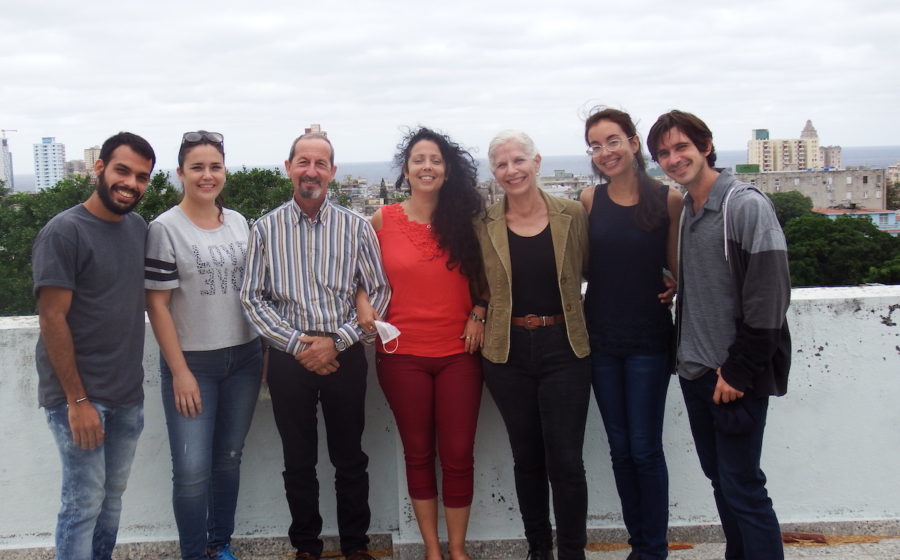
Who was Dr. Schreiber?
The annual AOS award, named for Dr. Ralph Schreiber, honors extraordinary conservation-related scientific contributions by an individual or small team. Dr. Schreiber was an ornithologist and curator of birds and mammals at the Natural History Museum of Los Angeles County. He is well known for his studies of Pacific seabirds, including the Brown Pelican, and the effects of El Niño on bird and mammal populations. The El Niño phenomenon occurs when the surface of the tropical Pacific Ocean becomes unusually warm, especially at the equator and along the coasts of South and Central America, disrupting the availability of fish populations that these birds feed on.
All about the Bird Ecology Group (BEG)
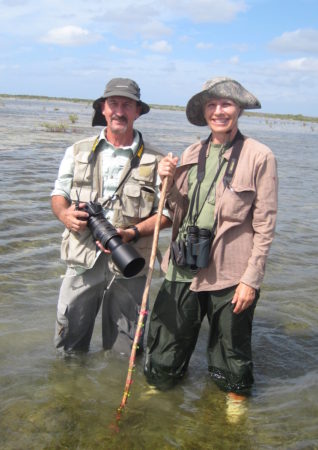
Since 1978, the BEG has dedicated its research work to Cuban bird ecology. Motivated by their unwavering fascination for birds, its members have worked hard, overcoming many financial and logistic al obstacles. The BEG has combined university teaching with research, capacity building, and environmental education, to contribute significantly to the knowledge and conservation of Cuban birds.
The group’s research has led to the publication of 128 peer-reviewed papers and 18 books. The most recently published book, Ecología de las aves acuáticas en las arroceras de Cuba (Ecology of Waterbirds in the Rice Fields in Cuba), describes research on the birds that are connected with the second most important agricultural crop in the country, and the importance of the rice paddies for their conservation.
The BEG has proposed two new protected areas in two important coastal wetlands: those south of Los Palacios, and the Delta del Agabama. It has supported the proposal for five Cuban Important Bird Areas (IBAs): CU003 Humedal Sur de Pinar del Río; CU006 Ciénaga de Zapata; CU009 Humedal Sur de Sancti Spiritus; CU014 Río Máximo-Cayo Guajaba, and CU020 Delta del Cauto. The group also recommended the inclusion of the West Indian Whistling-Duck and the Masked Duck in the Red Book of Threatened Species of Cuba and the Birdlife Red Data Bird List. BEG members are engaged in the study of waterbird species; the structure of bird communities in coastal ecosystems; the ecology of birds using rice paddies and shrimp farms; and birds using Havana city ecosystems (mangroves, parks, and botanical gardens).
The BEG: Busy with Piping Plovers
Since 2016, the BEG has annually surveyed between 68 to 180 km of coastline to assess the conservation status of wintering Piping Plovers frequenting the Cuban archipelago. In this same year they reported the highest number of individuals for Cuba:104 plovers! Through many hours of dedicated band resighting (finding and reporting band numbers of plovers that have come to Cuba for the winter) they have also helped to identify the breeding origin of wintering Piping Plovers on Cuban coastlines. And while other islands continue to battle with hunting quotas and regulations, the BEG has successfully banned the hunting of two historical game species in Cuba: the endemic and threatened West Indian Whistling-Duck and White-Crowned Pigeon. The group has also carried out years of vital Caribbean Waterbird Census counts at Cuba’s many important wetlands to learn more about numbers and trends of resident and migratory waterbirds and shorebirds.
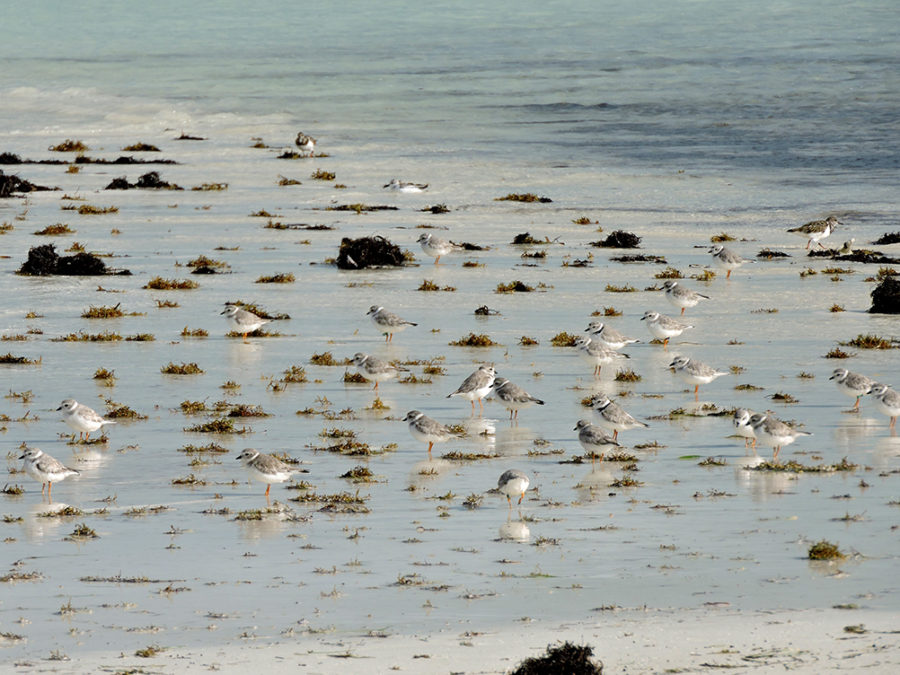
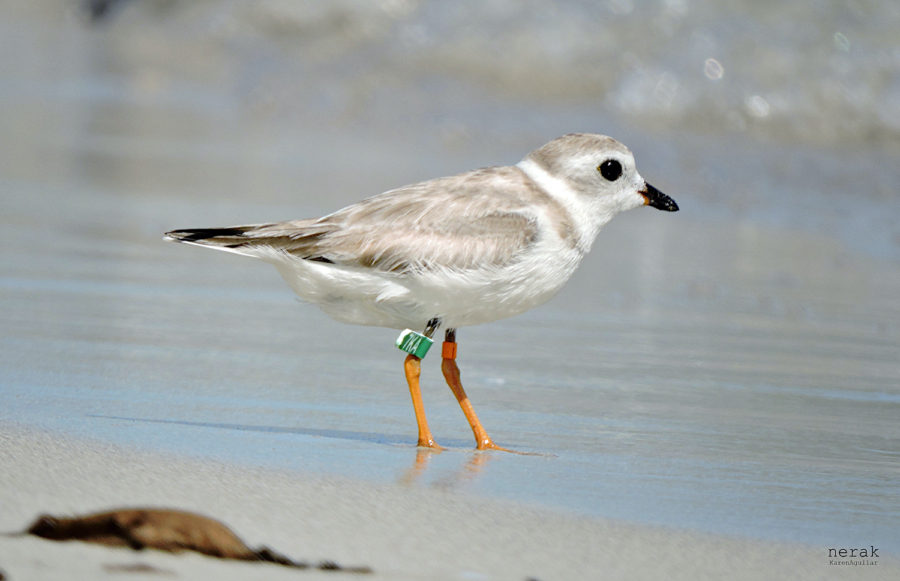
BEG has received many awards and plaudits!
Both internationally and locally, the BEG has received significant commendations for its efforts to protect Cuban birds and expand our understanding of bird ecology. In the past 42 years the small team has accepted 48 prestigious awards. Internationally, the BEG received the Whitley Award for Birdlife Conservation in 2002 and the Continuation Award; and the Silver Award from BP Conservation Award in 2002. Dr. Martin Acosta Cruz and Lourdes M. Mugica Valdés have received Lifetime Achievement Awards in 2001 and 2017, respectively, from BirdsCaribbean. Ianela García Lau received the Founders Award from BirdsCaribbean for outstanding student research, while she and Alieny González Alfonso received the Educators Award for their leadership in organizing bird festivals and bird education projects in Cuba. Lourdes was honored with an Honorary Fellowship from AOS in 2020.
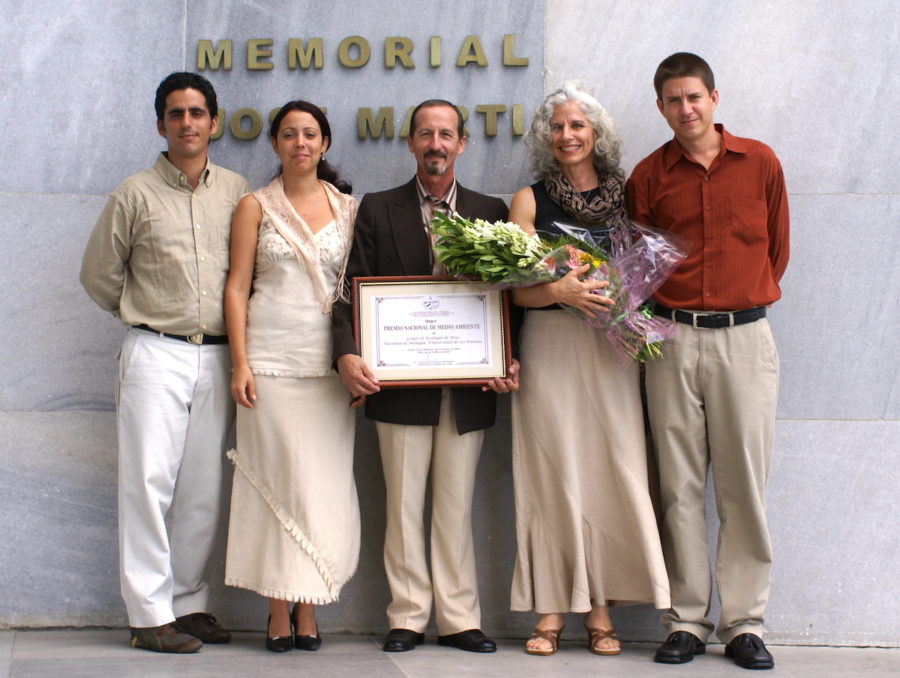
The local scientific community has also recognized their invaluable contributions. Two members have received the Carlos J. Finlay Order (the highest recognition given by the Cuban government for personal outstanding contributions to science). Martin and Lourdes have each received the Lifetime Achievement Award from the Havana University President. The BEG remains the only research group to have won the National Environmental Award, given by the Cuban Government. They have also won five Academy Awards from the Cuban Academy of Sciences.
Nurturing the ornithologists and educators of the future
The BEG also places emphasis on training and supporting the future ornithologists of Cuba and beyond. So far, nine PhD theses, 14 Masters theses. and 46 undergraduate theses have been supervised by BEG ornithologists. Three more PhD theses and 2 Master theses are in progress.
In addition to providing quality tertiary education to students, the BEG extends its capacity building to staff from Cuban protected areas and other conservation institutions. Over 127 participants have benefited from these workshops. The group has also provided teacher-training workshops for primary and secondary school teachers – a total of 120 participants, in both urban and rural regions of the island. These workshops have enabled teachers to encourage student enquiry, feed their curiosity, and deepen their understanding of ornithological concepts.
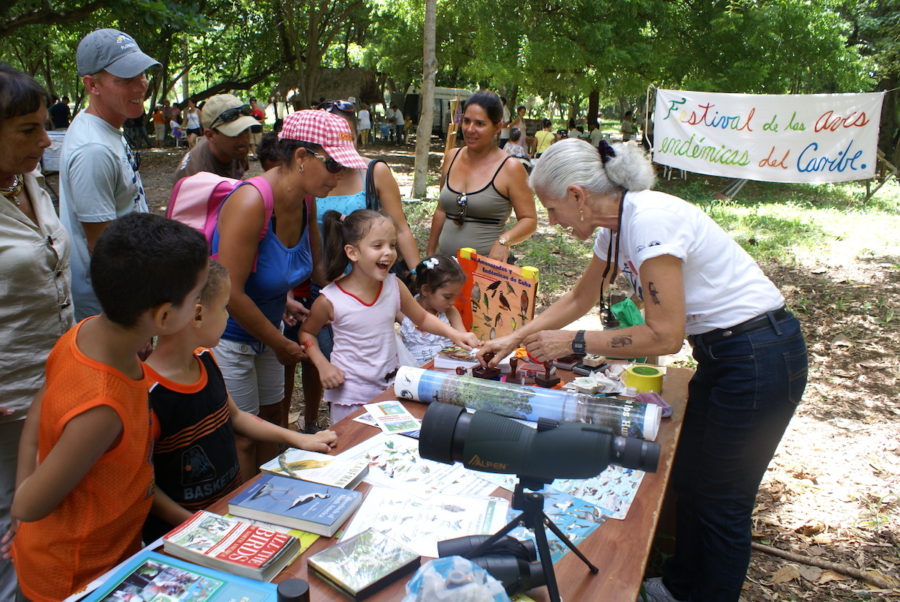
The thriving Caribbean Endemic Bird Festival in Cuba
For the past 15 years, the BEG has been the Cuban organizers of the Caribbean Endemic Bird Festival, a month-long festival to celebrate birds only found within the region. BEG members have worked to promote the value of and foster respect for Cuban birds and ecosystems among the public, using a mix of traditional (TV, radio, print) and new media (social media and apps). An astonishing 3,622 activities have taken place in the 15 Cuban provinces, with the participation of about 166,000 people, mainly children.
We are extremely proud to support and work alongside the Bird Ecology Group to study, conserve, and educate about Cuban birds and look forward to continuing our vibrant partnership. We wish the team many more years of success!


